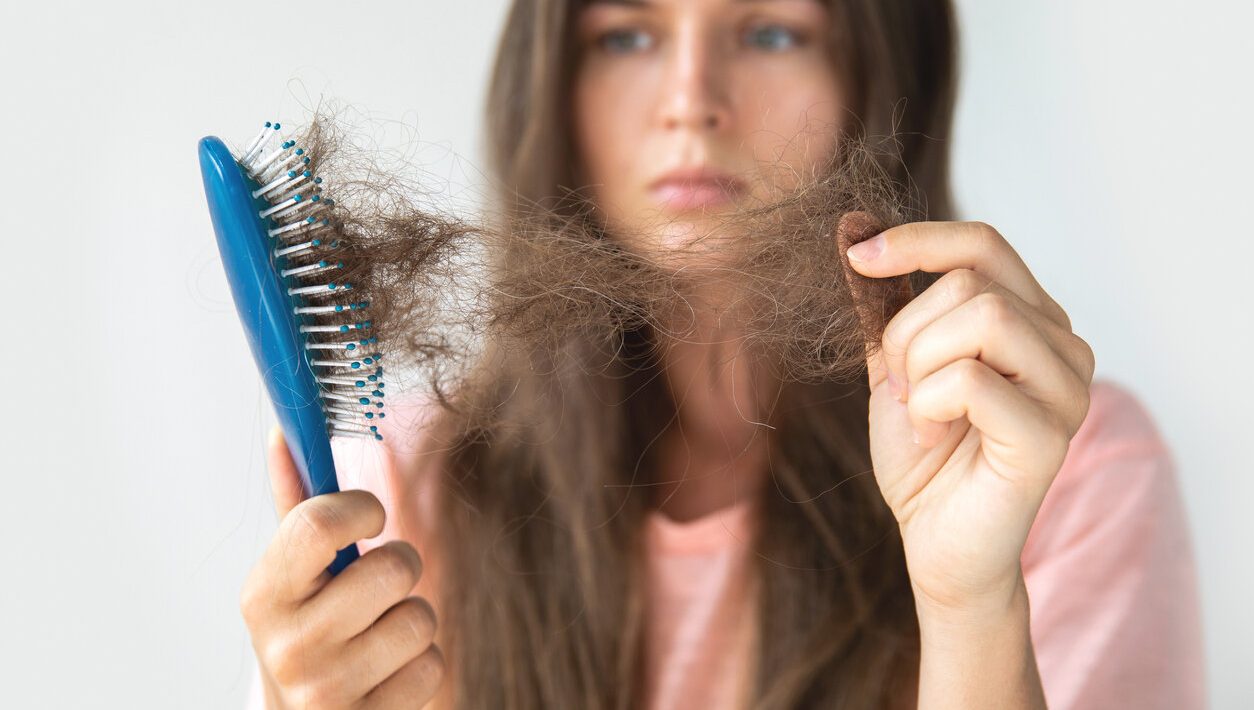Have you ever noticed your scalp appearing excessively shiny? If so, you may be wondering if a shiny scalp is an indication of permanent hair loss. In this blog post, we will explore the causes and treatments for a shiny scalp and whether or not it leads to permanent hair loss.
What Causes a Shiny Scalp?
A shiny scalp can occur for several reasons. It can be due to the buildup of natural oils that are produced by your scalp. If these oils are not washed away regularly, they can accumulate on the surface of your skin and give it a greasy appearance. Another reason for a shiny scalp could be seborrheic dermatitis. This condition occurs when the sebaceous glands produce excess oil, which leads to redness, scaling, and itching of the skin. Seborrheic dermatitis can also lead to dandruff, which causes flakes of dead skin cells on your scalp.
Does A Shiny Scalp Mean Permanent Hair Loss?
We often wonder — Does a shiny scalp mean permanent hair loss? While a shiny scalp itself does not necessarily indicate permanent hair loss, there is some correlation between the two. A study published in Dermatology and Therapy found that individuals with higher levels of sebum – oily matter secreted by the sebaceous glands – were more likely to experience hair thinning or balding as compared to those with lower levels. It’s important to note that excessive oil production is one among many other contributing factors for hair loss, such as hormonal imbalances or hereditary conditions like male pattern baldness.
How To Treat Shiny Scalp?
If you have noticed excessive shine on your scalp or tenderness in certain areas accompanied by flaking and itchiness, visiting your dermatologist might help you recognize the exact cause behind this situation. There are several treatment options available depending on the diagnosis. Some common treatments used include:
Shampoo:
Switching shampoos is often recommended when trying to deal with excessive oil production on the scalp. Look for shampoos that are gentle in nature and help remove excess oil. Avoid using hot water when washing your hair, as it will stimulate the sebaceous glands to produce more oil.
Conditioner:
As the name suggests, a conditioner conditions human hairs to become soft and smooth without harming them. But keep in mind do not apply conditioner on the scalp, as it can cause excess moisturization, which may lead to oily buildup.
Medical Aids:
In cases of excessively oily hair caused by a medical condition, like seborrheic dermatitis or psoriasis, medicated shampoos containing coal tar, salicylic acid, or zinc pyrithione can be used highly effectively. These shampoos make sure the scalp remains hydrated without producing extra moisture resulting shiny scalp.
Home Remedies:
Certain home remedies can also help reduce excessive oil production on the scalp. Tea tree oil has antifungal properties that can help combat dandruff and restore balance to the sebaceous glands. Applying coconut oil can also nourish the hair while controlling sebum production.
Final Thoughts:
While a shiny scalp itself does not necessarily mean permanent hair loss, it should not be ignored as it may indicate underlying issues such as increased production of oils or skin conditions like dandruff or psoriasis. The appearance of your scalp may be an important factor in diagnosing any problems with your hair health before they turn into major issues such as permanent damage or baldness. So keep notice of early warning signs and take necessary actions accordingly. Have you considered laser treatment for hair growth? This treatment has been popular for quite a few years now.
In conclusion, understanding why your scalp is shiny is crucial for treating any underlying conditions that could lead to hair damage over time. While major underlying conditions require medical attention, minor care-routine modifications such as regular washing of hair, using mild shampoo & avoiding extreme conditioning can ensure healthy and gorgeous hair (without worrying about hair loss!).





